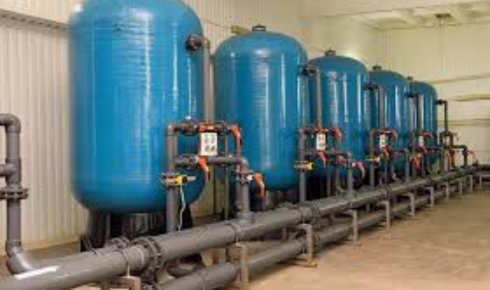Key Takeaways
- Water filtration systems deliver cleaner, safer water throughout your home for daily use.
- Several filtration types exist to match the system to your specific needs and local water profile.
- Effective water filtration can reduce contaminants linked to health issues, including lead, chlorine, and agricultural runoff.
- Improved water quality can even prolong the life of your plumbing and appliances.
- Switching to household filtration lowers your reliance on bottled water, shrinking plastic wast,e and environmental impact.
Table of Contents
- Why Home Water Filtration Matters
- Different Types of Filtration Systems
- Health and Safety Perks
- Economic and Environmental Advantages
- Choosing the Right Water Filtration System
- Quick Maintenance Tips
- Recent Research and News
- Frequently Asked Questions
Why Home Water Filtration Matters
Clean and safe water is the cornerstone of a healthy home, but the stories of water contamination and boil advisories frequently make headlines. Local water providers struggle as much as they can to treat and control the water supply, but the process by which the water reaches the tap is long and complicated. When the water in your town meets these safety tests, there is still a chance that contaminants can enter through old water pipes, runoff from food sources, or broken main pipes. That’s why more homeowners turn to a water filtration system Tampa for proactive protection. The systems filter out particles and address unseen dangers, giving families peace of mind with every drop they consume or use in cooking. In reality, there is no overestimating the peace of mind that comes with having control over your water quality.
Most health experts in the field of public health recommend testing the water in every home because secondary contaminants and impurities may not have a particularly distinctive smell or taste. However, there are other indicators of poor tap water quality, such as haze, a mild odour, or a metallic taste, which serve as initial warnings that you should filter the water. The Centres for Disease Control and Prevention (CDC) further notes that alterations in the appearance, flavour, flavour, or aroma of the water should be investigated. By recognising the signs and implementing filtration during your home’s checkups and repairs, you are already taking a significant step toward avoiding potential health risks and providing a safer environment for all its inhabitants.
Different Types of Filtration Systems
There is no single approach to water filtration systems, and it is even good. Houses and water supplies are different, i.e., you will have the opportunity to customize your solution to meet your specific needs. For example, activated carbon filters are highly efficient in removing chlorine, sediment, volatile organic compounds (VOCs), and the unpleasant odour associated with tap water. They can be placed inside the pitchers, on countertops, or integrated into the plumbing, making them accessible and conveniently applicable to standard requirements. On the other hand, reverse osmosis (RO) systems are renowned for their ability to extract a vast array of impurities. These strong systems push water through a semi-permeable substance, eliminating heavy metals like lead and arsenic, nitrates, certain bacteria, and even microplastics that have contaminated city supplies. Although RO is typically implemented in the kitchen area underneath the sink as a drinking and cooking water source, the effects of its presence on overall water safety render it a consideration for any family, particularly for those with young children or physically compromised family members.
Whether your water source is a personal well or you are concerned about biological contamination, a UV water purifier may be the missing link. UV systems are devices that purify water using ultraviolet light, rendering bacteria, viruses, and protozoa inactive and eliminating the need for chemical treatment. Finally, water softeners do not treat chemical contaminants; however, they are a necessity where there is hard water, which creates scale, corrosion of appliances, or skin problems. Homeowners can keep many threats (chemical, biological, and mineral) out of their daily activities using an adequate system or combination.
Health and Safety Perks
The benefits of home water filtration extend well beyond simply improving taste.Recent evidence suggests that individuals residing in homes equipped with water filtration systems are less likely to be exposed to harmful substances, such as lead and PFAS, which pose long-term health risks. This is very essential to families with very young children or elderly adults. The U.S. Environmental Protection Agency (EPA) consistently cautions that exposure to any amount of lead is not considered safe, particularly among children, as they are at risk of experiencing neurological delays and developmental abnormalities. The security of eliminating these risks is something that cannot be easily quantified.
The benefits, however, extend further: by purifying the water, it is possible to avoid some of the dermal and respiratory problems that chlorine and other chemicals commonly used during municipal water purification can cause. Research and anecdotal evidence frequently show a reduction in eczema, dry scalp, and allergic reactions in homes equipped with whole-home systems. A 2022 study on the effect of multi-stage home filtration on persistent organic pollutants showed a reduction of up to 99 per cent of the contaminants, providing strong support for advanced filtration at the tap.
Economic and Environmental Advantages
Considering the bottom line, a water filtration system will save money in a manner that people do not notice immediately. Hard or poorly filtered water is infamous for blocking pipes, damaging water heaters, and accelerating the wear and tear on dishwashers, washing machines, and other appliances due to minerals and sediments that clog the pipes and damage water heaters. The cost of repairing or replacing water-damaged plumbing could easily amount to hundreds or even thousands of dollars over time—costs that a properly selected filtration device can spare. Additionally, correctly filtered water can reduce the amount of detergents and soaps you use, resulting in daily savings and improved cleaning and washing outcomes.
On the eco-friendly side, filtered tap water is an excellent alternative to bottled water. Americans dispose of billions of used plastic bottles annually, and not all of them undergo recycling. This persistent problem with plastic has been exhaustively examined by National Geographic, which highlights the worldwide issue of single-use plastics. Once you turn to home filtration, you will make a modest yet still vital contribution to reducing the plastic waste problem, and you will never again have to carry a heavy bag of bottled water home after shopping. This will result in fewer plastics in the garbage and fewer losses to you in the long term.
Choosing the Right Water Filtration System
Selecting a filtration system suitable for your family comes down to aligning the system with the challenges your water presents. First, develop a water quality report: most communities publish yearly water reports, or home water test kits are available in hardware stores in case you are on a well. Listen to the most widespread contaminants. As an example of such possible considerations, in the case of lead, certified filters should be sought to eliminate such. Due to concerns about taste or smell, a carbon-based system can be used.
Then, there is the question of whether to buy a single-point-of-use unit or a whole-house unit. When it comes to drinking and cooking, usage of point-of-use systems (such as faucets or under-sink filters) is excellent. Whole-house systems are ideal for protecting all taps, showers, and appliances throughout the entire house. Budget and maintenance requirements are also very essential. Although pitchers and faucet attachments are economical initially, they carry a high cost of replacement of cartridges. Higher-end systems cost more upfront but filter on a greater scale and tend to be more efficient in the long run. To narrow down your options, it is advisable to consult trustworthy online sources and seek advice from local water specialists, especially if you need to address multiple problems.
Quick Maintenance Tips
Your filtration system is easy to maintain, but it’s essential to follow a regular maintenance schedule. All filters have a shelf life, and failure to replace them at the appropriate time may transform an asset into a liability, where bacteria may become trapped, or a trapped contaminant may be released back into the water. Make an easy schedule according to the manual of your system. Filters fitted in the faucet or pitcher typically typically need to be changed every few months. However, reverse osmosis cells may last for several years with regular pre-filter replacement. UV bulbs and sediment filters are more user-friendly in this regard: wait at least once a year to check them; set a reminder in your calendar or use an app if your system offers one.
Always purchase replacement filters from reputable brands to avoid knockoff cartridges, which may not meet safety standards. Whenever replacing a filter, check the fittings and hose systems for possible leaks. For more intricate installations, periodic professional servicing should be considered. Your filtration system remains open to run smoothly year after year, keeping your family supplied with fresh, healthy water while protecting your investment with a bit of care.
Recent Research and News
The concept of proactive water safety is reflected in continually evolving research and an increasing body of knowledge among the population. A recent article in Scientific American states that, despite advancements in treatment technologies, millions of people in the U.S. still lack access to clean water. In underserved or rural areas, at-home filtration may be much more than an addition to the system; it may be invaluable protection against chronic contamination. The case in favour of home filtration gets more solid as the news about potentially new threats, such as PFAS and agricultural runoff, emerges. Continued monitoring of water quality warnings issued by public health authorities, along with the adoption of new technologies in water filtration, is essential for maintaining household safety systems.
Frequently Asked Questions
1.How can I tell if my water needs filtering? The evidence that your water needs filtering may include unusual tastes, odours, discolouration, and sediment in your glass. To obtain a clear answer, consider using a water testing kit or ask your provider to conduct an official water examination.
2.Is it hard to install a water filtration system? Most standard systems are self-assembled and will come with comprehensive instructions. Professional assistance can, however, be beneficial in whole-house installations or elaborate reverse osmosis systems where proper installation and safety are crucial.
3.Does a filter remove all contaminants? No one filter is an all-in-one. Often, two systems can be combined, such as a carbon filter and a UV purifier, to eradicate a broader range of pollutants and achieve the best overall protection.

